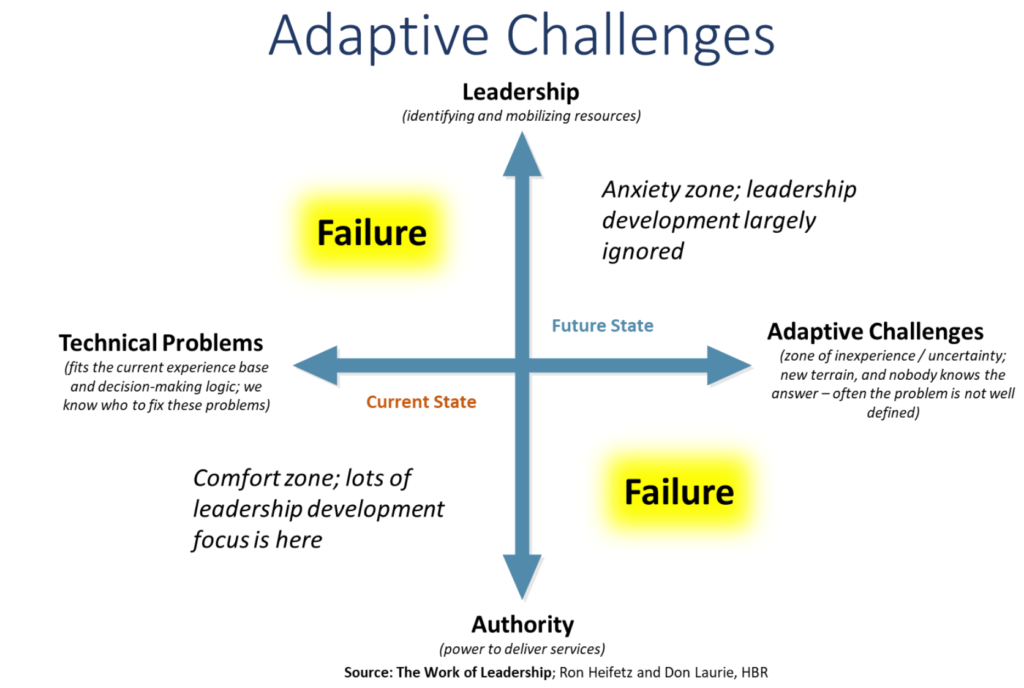New Business Models Require Adaptive Leaders
Richard Lynch, Co-Founder
.
Operationalize, operate, and transform all with equal ease. That is the role of leaders. For decades, organizations have suffered from inability to operationalize and transform even as they have continuously improved their ability to operate efficiently. We find it telling that Forbes magazine and The Center for Creative Leadership do not include adaptability on their lists of essential leader traits.
.
Variety and rate of arrival of new disruptive forces is accelerating. Forces are coming from all directions, geopolitical, technological, environmental… and they are overlapping. CEOs say that 70% of their leaders are not prepared to lead their organizations into the future.
.
There are many good programs to develop leadership skills such as operational excellence that address technical problems but few that address response to disruption or adaptive challenges. As Ronald Heifetz and Donald L. Laurie point out in their classic HBR article, The Work of Leadership, leaders are set up to handle “technical” challenges that exist in current processes where they have clear lines of authority to get things done. This is the leader comfort zone. Executives apply a well-practiced set of methods and tools to a well-understood and clearly defined problem.
.

They go on to describe adaptive challenges as the wicked problems that organizations face. They are messy, have unclear edges, and they tend to be systemic in nature. They require that resources be mobilized quickly. The natural response is to apply proven technical interventions to adaptive challenges.
.
This is doomed to failure as “fix what’s broken” thinking fails in the face of poorly defined causes and unproven remedies. Failure is accelerated by falling back on command-and-control leadership that drives people further into uncharted territory. The coupe de gras is often delivered by rigid organizational boundaries and protocols.
.
Research shows that the talent needed to respond to adaptive challenges has been largely ignored as traditional leadership development and team training delivery methods continue to miss the mark. One other hand, we find it refreshing that Korn Ferry is addressing unmet needs. In their report entitled The Self-Disruptive Leader, they address what’s needed. We think they are spot on:
.
- shorter, targeted learning connected to the learning journey,
- virtual break out rooms,
- virtual whiteboards,
- structured group facilitation and peer coaching with interaction embedded and an experience that is seamlessly integrated into the work.
HR and Learning Executives play a vital role designing and implementing a new approach that places learning directly within their mission objectives and in the flow of work. In the process, leaders will sharpen focus on developing competencies that your organization can benefit from most. Top on that list on competencies is adaptive leadership to prepare leaders for the future – any future.
.
Click here to see a preview of our Framework for Adaptive Organizations and stay tuned for our next blog: “The Leadership Challenge: Invest how?”